Learn about brain health and nootropics to boost brain function
Wimbledon: How Do The World’s Top Tennis Players Stay In Shape?
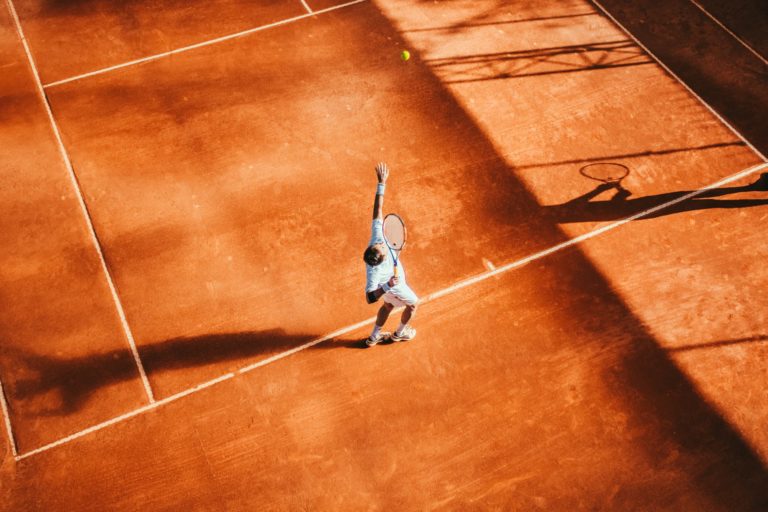

Wimbledon is coming to an end and as usual it has been thrilling. While each of the world’s top tennis players gives their all during the world’s biggest tennis tournament, we’re breaking down how they prioritize their health and well-being both on and off the court.
Wimbledon Player’s Health Secrets
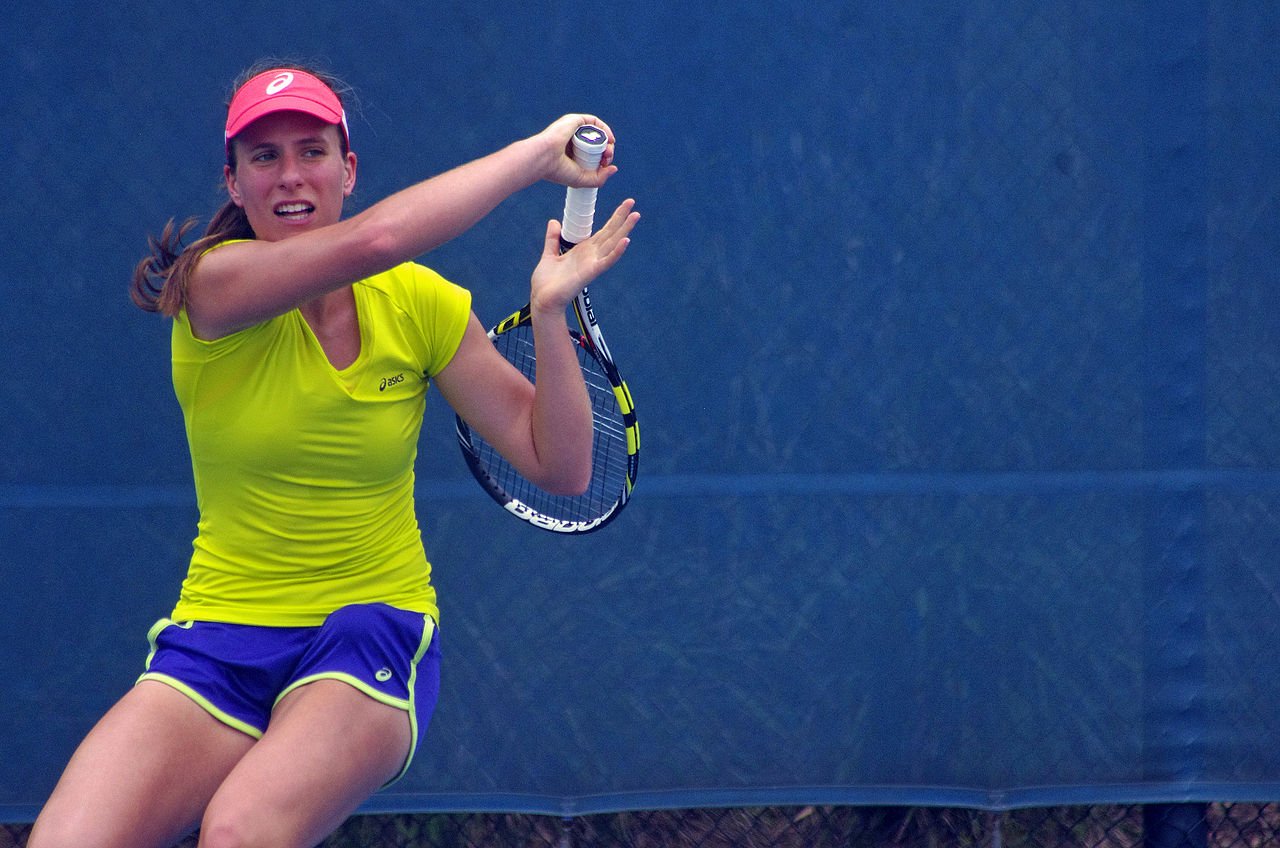
While the 28-year-old tennis player only made it to the quarter-final stage of Wimbledon before being knocked out by Barbora Strycova, her incredible physique and all-around strength were put on notice. So how does the three-time Women’s Tennis Association stay healthy? By prioritizing different aspects of her diet.
She’s practices mindful eating
Speaking to the Telegraph in 2017, the Australian turned British-citizen revealed that she is incredibly conscious about making the right food choices.
“I am always aware of what I am putting into my body and what I am going to get out of it in terms of energy or recovery. But also I know everything is okay in moderation.” she shared. Eating mindfully may seem intimidating, but doing so not only improves your relationship with food but it also comes with a host of health benefits.
Firstly, it prevents overeating which then means a reduced risk of binge eating and unhealthy weight gain. Secondly, mindful eating also improves your digestion and it can help the body better absorb all the necessary nutrients. Lastly, mindful eating allows you to enjoy the moment and the food.
A mindful eating technique that everybody can adopt is Hara Hachi Bu. This is a Japanese term that teaches one to eat until they are only 80% full and it is regularly practiced by the Okinawans in Japan. Okinawa also happens to be a Blue Zone. This makes it virtually free of diseases, with numerous healthy inhabitants living up to 100 and beyond.
She’s a fan of supplements
In the same interview, Konta revealed that she also ensures that her body gets all the right nutrients by supplementing her diet with natural supplements,
“I am a big fan of trying to be as natural as possible, so I try to get most of my nutrition through food” she shared,“But for supplements I make sure I get my omegas and probiotics as well as some zinc, magnesium and vitamin C, so I stay healthy and recover well.
Nothing can ever top a healthy and well-balanced diet. That said, supplements serve to provide you with the nutritional boost that your diet may be lacking in. Omega supplements may help improve cardiovascular health. Probiotics serve to ensure your gut health (which is incredibly essential for overall health) and zinc, magnesium and vitamin C supplements help to strengthen your immune system.
Fruit is her snack of choice
“I am a big fan of bananas and fruit in general,” says Konta, “My favorite fruit is passion fruit and cherries, hands down. Probably followed closely by watermelon – nothing beats cold watermelon on a hot day.” Not only are her fruits of choice delicious, but they’re also rich in powerful phytochemicals. These are chemical compounds produced by plants that help to protect them against external dangers. Moreover, when ingested, they provide the body with plenty of health benefits.
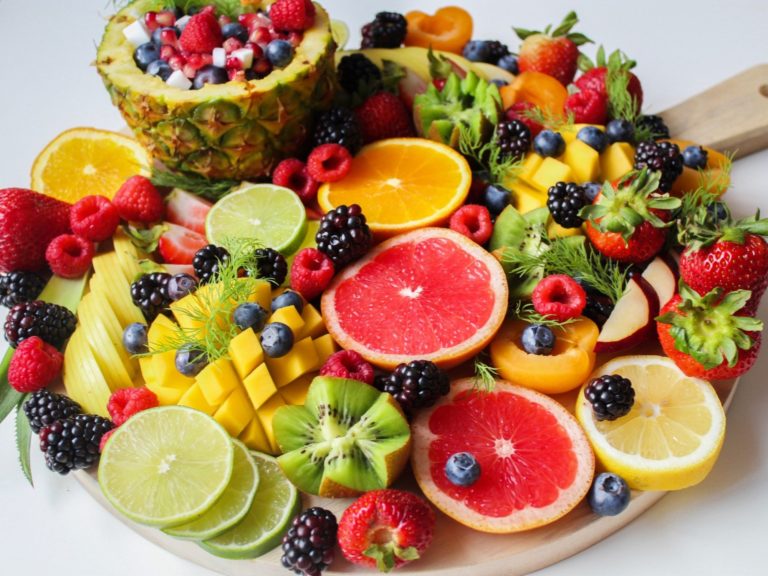
In terms of passion fruit, the phytochemical zeta-carotene may possess anti-cancer properties. Cherries contain flavonoid anthocyanins, which also give them their bright, red color. A study published in the Critical Reviews in Food Science and Nutrition journal found that anthocyanins may help protect cardiovascular health.
Lastly, watermelon is rich in the phytochemical lycopene. The compound, found in tomatoes as well as pink guava and papayas, has been linked to protecting against prostate cancer and effectively protecting against toxic free radicals.
She understands the link between sports and mental health
Along with other tennis stars, Johanna Konta is backing a campaigner’s aim to hit 200,000 tennis balls in a month to raise awareness of how the sport can help mental health. According to the Evening Standard, Heathrow Border Force officer Robyn Moore, in partnership with charity Bright Ideas for Tennis, has been recording her shots with the Swing Tennis app on her Apple Watch in an effort to raise £100,000 to fund free tennis activity sessions for people experiencing mental health difficulties.
In regards to mental health, tennis can help to elevate your mood as, like other forms of exercise, it causes the brain to release endorphins. These are chemicals in the brain that help to boost your mood and reduce feelings of sadness. Additionally, tennis is a great way for you to release any built-up frustrations and reduce your stress levels.
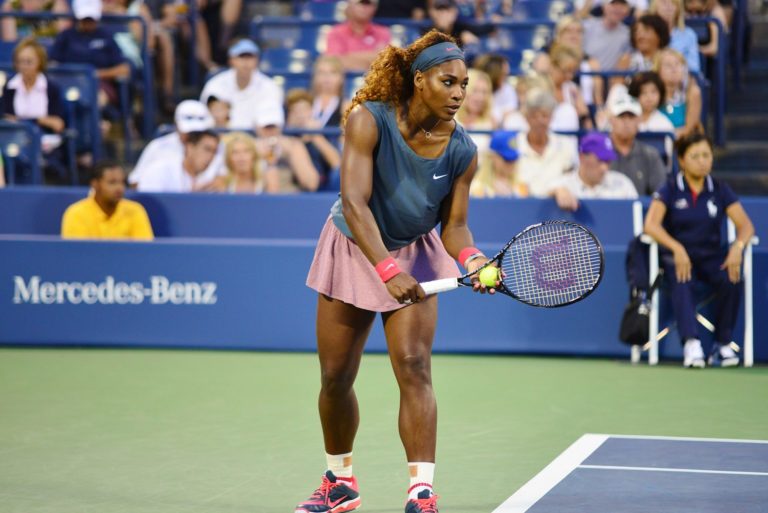
Serena Williams lost the 2019 Wimbledon final. However, it doesn’t look like the 37-year-old is slowing down anytime soon. The mother of her 18-month-old daughter, Alexis Olympia Ohanian, Jr. may have slowed down when she was pregnant, but she soon shot back to tennis stardom after enjoying a healthy pregnancy and enduring quite a difficult delivery.
Her workout is focused on endurance and flexibility
Mackie Shilstone has been Serena Williams’ trainer for the past decade (he even officiated her wedding). He created a workout routine aimed at enhancing her endurance, flexibility and protecting her muscles. Endurance training not only provides you with better energy (which has become quite evident on the Wimbledon court) but it also creates a stronger, healthier body and boosts your metabolism.
She occasionally follows a raw and vegan diet
Under her own banner, Venus Williams is an incredibly gifted tennis player. In 2011, Serena’s older sister was diagnosed with an auto-immune condition called Sjogren’s Syndrome. To alleviate the symptoms, Venus Williams went on a strictly raw vegan diet. The results not only ameliorated the symptoms, but they also allowed her to get back to tennis. In a show of solidarity and support, Serena decided to also go on a raw and vegan diet.
A raw and vegan diet has been associated with improved cardiovascular health and a lower risk of diabetes (1,2).
She advocates for healthy and safe pregnancies
There are numerous anecdotes about crazy, unhealthy pregnancy cravings. That said, the only cravings that Serena had during her pregnancy were for healthy vegetables. Granted, the tennis titan had a relatively safe pregnancy. Unfortunately, this all changed following her daughter’s birth.
A few days after an emergency C-section, the new mum developed a pulmonary embolism after her surgery – a blood clot had made its way to her lungs. This led to a serious coughing fit and her C-section stitches came undone. Thankfully, after three more successful surgeries, the tennis star was healthy enough to return home with her newborn. Following her experience, the Wimbledon finalist has spoken out about the importance of ensuring that every woman, regardless of class, enjoys a healthy and safe pregnancy.
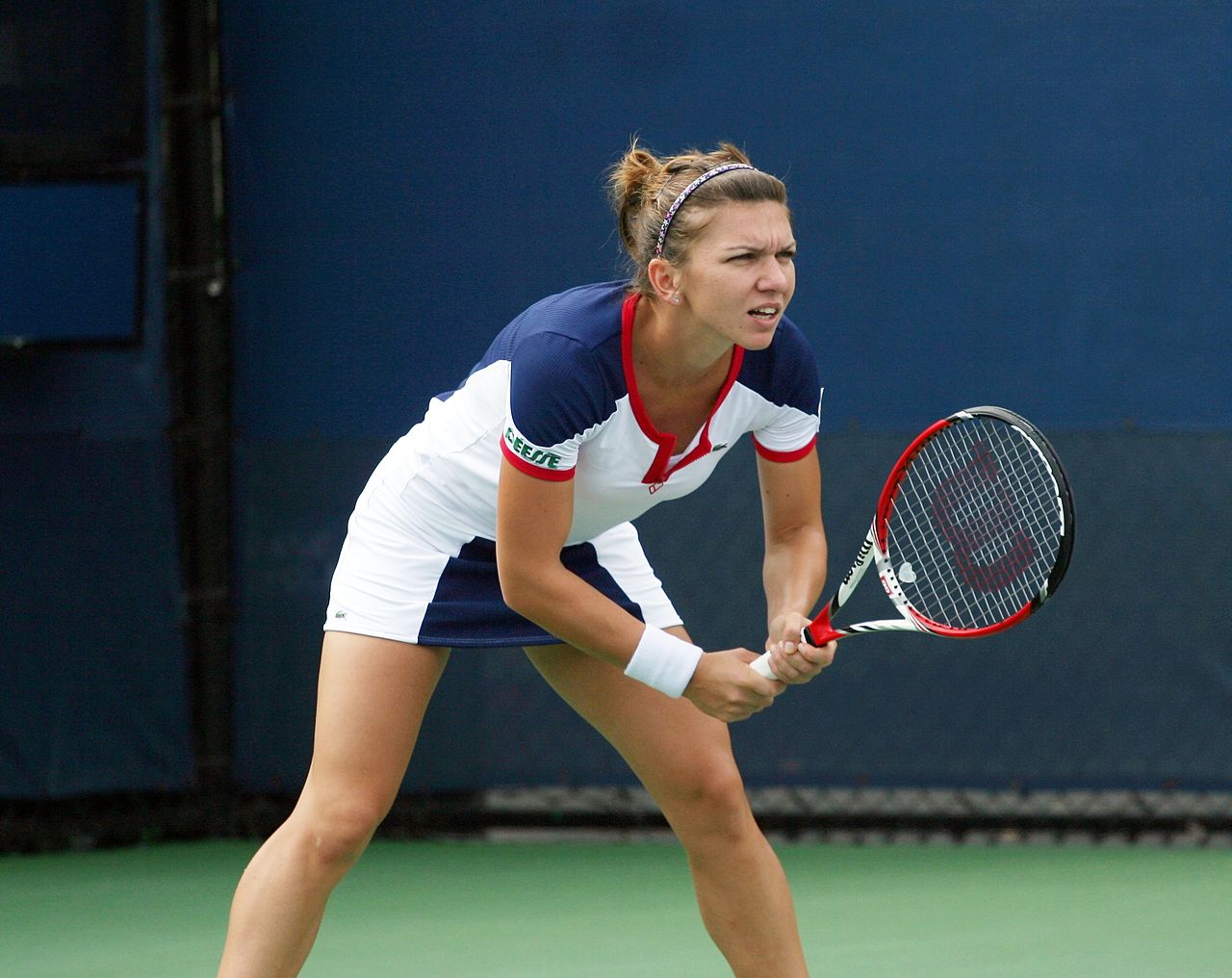
The 27-year-old Romanian recently went on to defeat Serena Williams to win her first ever Wimbledon title. So how did she manage this extraordinary feat?
She follows a strict diet
According to reports, the tennis star follows a strict diet during her time off the court. She is a big fan of sushi. As a result, she provides her body with a healthy dose of omega-3 fatty acids. These fatty acids help to manage heart health, fight depression and anxiety, combat inflammation and help ward off neurodegenerative diseases.
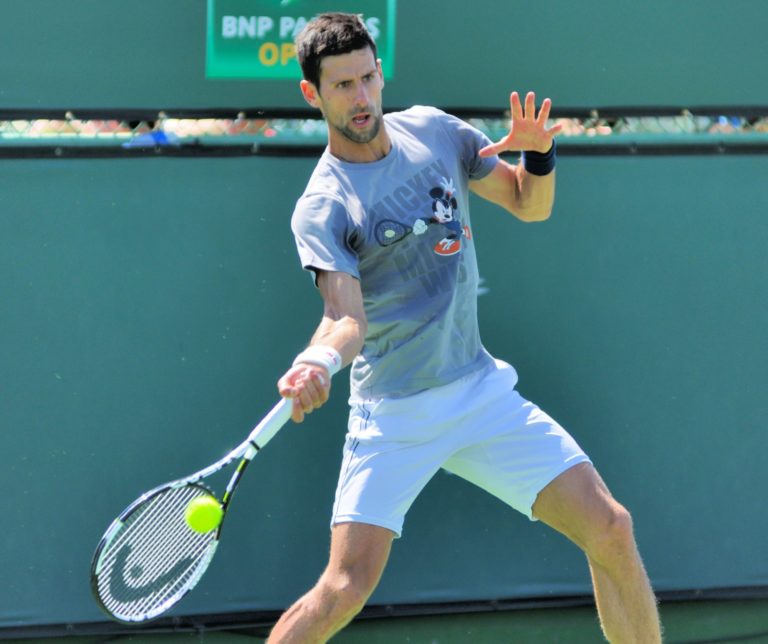
Currently ranked world No. 1 in men’s singles tennis by the Association of Tennis Professionals, the Serbian native is set to compete for his fifth Wimbledon championship in the final against Roger Federer. Over the course of his professional career, Djokovic has won 15 grand slam titles. This may be credited to the way in which he prioritizes his health.
He starts his morning off right
According to a report from the Irish website JOE, Djokovic spends the first 20 minutes of his day either doing yoga or tai chi. We’re all well-versed in the various benefits that come from performing daily yoga but what about tai chi?
The ancient Chinese discipline has been linked to helping one sleep better, reducing their risk of falls and it can also improve one’s memory and operative skills.
Aside from his fitness regime, Djokovic revealed in hisbook Serve to Win that once he’s out of bed, he drinks a tall glass of room-temperature water. This serves to hydrate the body and ensure that it starts functioning at its peak.
He loves his honey
According to his book, Djokovic revealed this his morning ritual also consists of eating two spoonfuls of honey every day,
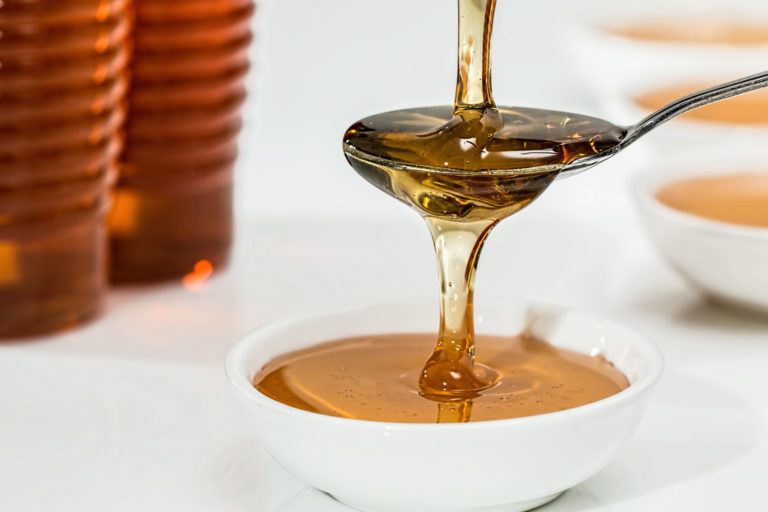
“I try to get manuka honey, which comes from New Zealand,” he writes, “It is a dark honey made by bees that feed on the manuka tree (or tea tree), and has been shown to have even greater antibacterial properties than regular honey”.
Honey’s antibacterial properties make it a must-have product that every home should have. Moreover, it’s the perfect alternative to processed, white sugar.
“I know what you’re thinking: Honey is sugar. Well, yes, it is. But your body needs sugar. In particular, it needs fructose, the sugar found in fruits, some vegetables, and especially honey” explains Djokovic, “What it doesn’t need is processed sucrose, the stuff in chocolate, soda, or most energy drinks that gives you an instant sugar shot in the body, where you feel like ‘Wow!’ I don’t like ‘wow’. ‘Wow’ is no good. If you have ‘wow’ now, that means in thirty minutes you’re going to have ‘wow’.
He stays hydrated whilst working out
During a workout or a match, the body sweats a great deal. This not only results in loss of water but also a loss of electrolytes and other important minerals. If one does not replenish these lost substances, they run the risk of muscle spasms, cramps, paralysis, and respiratory problems.Djokovic revealed in his book how he helps to maintain the levels of electrolytes in his body,
“During practice, I go through two bottles of an energy drink containing fructose extract. It’s not too heavy in the stomach, but allows me to replenish” he shared, “The ingredients I look for in a drink are electrolytes, magnesium, calcium, zinc, selenium, and vitamin C. The magnesium and calcium help with heart and muscle function and prevent cramps… After practice, I have an organic protein shake made from water mixed with rice or pea protein concentrate and some evaporated cane juice”.
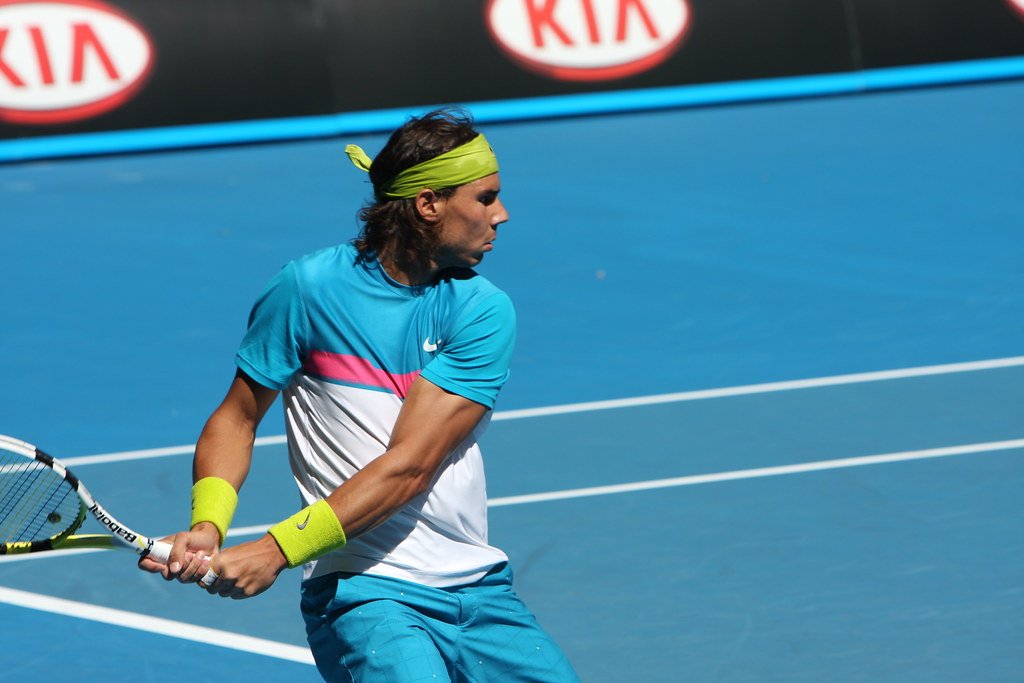
The Spanish 18-time Grand Slam champion unfortunately lost in the Wimbledon semi-finals. However, he was in top form during the game.
Speaking to Men’s health in 2009, the now 33-year old revealed an important aspect of his training regime.
He prioritizes his stretching game
“This is very important. I do it every day. I have my own Physio and he stretches me every day. This is crucial” he shared. Nadal is absolutely correct as stretching helps to keep the muscles loose and healthy. Weak and tight muscles mean an increased risk of sprains, strains and joint pain.
However, prioritizing your stretching not only means an effective workout. It also reduces stress and serves to improve your functionality by making you more flexible and energetic.
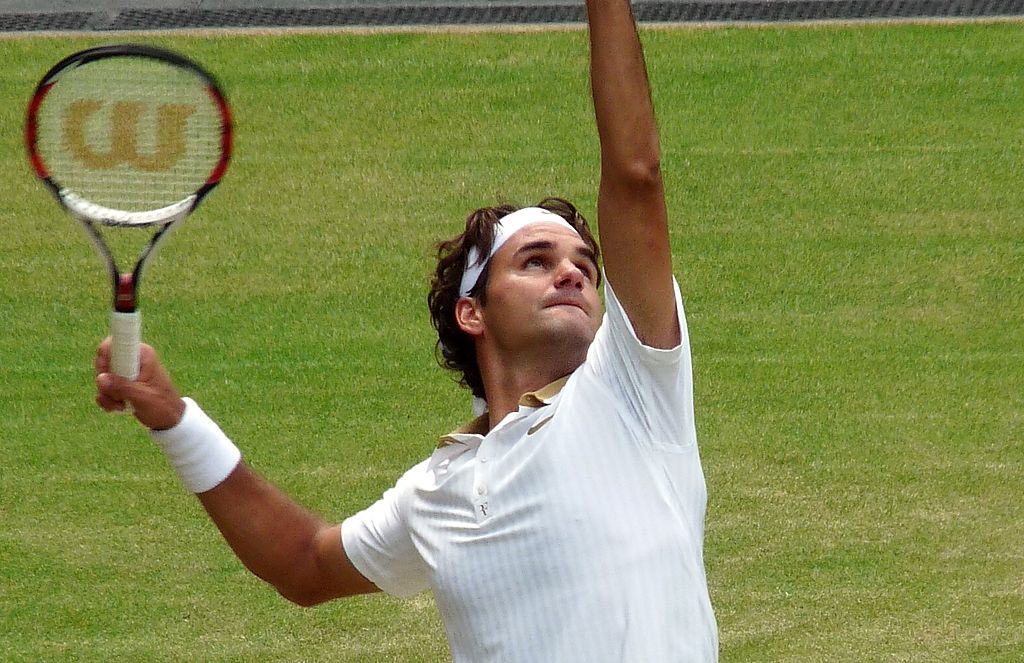
The 37-year old, Swiss tennis legend is set to battle Novak Djokovic in the final of the Men’s Wimbledon tournament. While he is incredibly fit for his age, Federer does acknowledge that properly caring for his health and fitness is the foundation of his longevity both on and off the court.
He takes more time to relax
Following his 2017 Wimbledon win, Federerrevealed in a TV interview the importance of resting between tournaments. Federer can no longer count on his youth to speed up his recovery time. So, it’s important for him to take more time to relax.
This also applies to individuals who choose to exercise every day of the week. Not giving your body a chance to recover after rigorous exercise may cause you more harm than you think. Is your body continuously sore? Are you’re battling with constant stiffness? Have you noticed a change of color in your urine? If so, you may need to take a rest day because the overtraining is taking a toll on your body.
Maintain a healthy family environment
Federer once shared that his family environment had a positive effect on him. Moreover, he credits it for his professional success.
As mentioned, Blue Zones are areas with a large number of healthy residents living to 100 and beyond. One of the many characteristics of Blue Zones is their emphasis on community and family. Solitude and isolation increase stress levels and this then increases the risk for chronic diseases. That said, healthy family and social ties are incredibly crucial pillars to longevity and health.
Click here to view full article